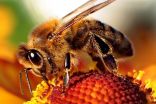The presentation will take place here at the 249th National Meeting & Exposition of the American Chemical Society (ACS), the world's largest scientific society. The meeting features nearly 11,000 reports on new advances in science and other topics. It is being held here through Thursday.
As many as 90,000 pets and wild animals are poisoned annually by drinking antifreeze, says the Humane Society of the United States. And the American Association of Poison Control Centers reports that about 6,000 people were poisoned by the toxic liquid in 2012. Several hundred of those were children. Harry Potter star Daniel Radcliffe revealed last fall that he became ill after accidentally drinking a mixture of half water/half antifreeze from a faucet in Canada.
"Ethylene glycol, the predominant constituent of automotive products, such as antifreeze and deicers, is chemically broken down in the body into toxic compounds," says Edward V. Clancy. "It and its toxic byproducts first affect the central nervous system, then the heart and finally the kidneys. Drinking sufficient amounts can be fatal." Clancy is chief technology officer and founder of ACTA Technology, Inc., and professor emeritus at California State Polytechnic University.
The researchers at ACTA have created an ecofriendly and safe antifreeze by turning to a substance called propylene glycol and combining it with an additive that also makes the new product more efficient, Clancy says.
Unlike the poison ethylene glycol, propylene glycol is safe to consume -- the syrupy liquid is a common food additive used to absorb excessive moisture and stabilize mixtures. For example, it is in some foods that contain artificial sweeteners, as well as in some pastry icings. It is "generally recognized as safe" by the U.S. Food and Drug Administration.
Clancy notes that propylene glycol is already used as antifreeze in some machinery where safety is especially important, such as in manufacturing plants where food is made and antifreeze leaks could result. But it would not be practical to use it in vehicles directly because propylene glycol alone is thicker than ethylene glycol, leading to less efficient cooling and added costs, he says.
The team, looking for a way to overcome the problem, developed an additive composed of nanoparticles that thinned the propylene glycol to a point where it significantly improved heat transfer and made it more effective than ethylene glycol, Clancy says. "Our additive creates a stable dispersion of high surface area, pyrogenic metal oxide particles," he explains. "This high surface area seems to be functionally critical to the superior heat transfer performance." They also expect the new antifreeze to be safe for humans, given that the additive's constituents are not expected to have hazardous effects based on material safety data sheet information.
The researchers tested the propylene glycol and additive mixture in the laboratory to see whether it would be a good substitute for ethylene glycol. They found that their antifreeze was 60 percent more efficient at cooling than conventional formulations.
"Because ACTA's patented propylene glycol/water mixture with our additive increases the heat transfer of the flow systems, vehicle manufacturers could make these systems smaller," says Clancy. "A smaller radiator would result in a lighter car, thereby increasing fuel economy and cutting emissions."
Changing the radiators would require some redesigns, and this would take time, says Clancy. Thus, the team first plans to optimize the antifreeze for smaller markets, such as the food and beverage industry. They are also working on ways to adjust the fluid so that it can be produced on a large scale. He predicts that the product will be on the market for food processing within a year.
INFORMATION:
A press conference on this topic will be held Wednesday, March 25, at 11 a.m. Mountain time in the Colorado Convention Center. Reporters may check-in at Room 104 in person, or watch live on YouTube http://bit.ly/ACSLiveDenver. To ask questions, sign in with a Google account.
The researchers acknowledge funding by the U.S. Environmental Protection Agency and ACTA Technology.
The American Chemical Society is a nonprofit organization chartered by the U.S. Congress. With more than 158,000 members, ACS is the world's largest scientific society and a global leader in providing access to chemistry-related research through its multiple databases, peer-reviewed journals and scientific conferences. Its main offices are in Washington, D.C., and Columbus, Ohio.
To automatically receive news releases from the American Chemical Society, contact newsroom@acs.org.
Note to journalists: Please report that this research is being presented at a meeting of the American Chemical Society.
Follow us: Twitter | Facebook
Title
Safer and more energy efficient antifreeze
Abstract
Ethylene glycol, a known poison, is the main ingredient in antifreeze. Ethylene glycol smells and tastes sweet which attracts both children and pets to consume it. Ethylene glycol should not be confused with propylene glycol, a common food additive. Drinking ethylene glycol antifreeze will cause heart and breathing difficulties, kidney failure, brain damage and even death. Two ounces of ethylene glycol antifreeze can kill a dog, one teaspoon can kill a cat and two tablespoons can be lethal to a child. The American Association of Poison Control Centers reported that there were 5,784 poisonings due to ethylene glycols antifreeze in 2012. There were 431 reported cases of children under the age of 5 years old, some of these cases were fatal. ACTA was funded by the US EPA to develop a safer and greener antifreeze. Their product improves the heat transfer capability of propylene glycol and is 58% better than ethylene glycol antifreeze in a circulating cooling system. Therefore, heat transfer performance and cost should no longer be reasons to use the potential lethal ethylene glycol antifreeze. ACTA's additive to propylene glycol antifreeze can reduce our dependence on foreign oil and reduce greenhouse gas emissions because of improved energy efficiency. This safer and greener propylene glycol can improve automobiles' fuel economy because the car's radiator could be smaller and less fluid needs to be pumped in the automobiles' cooling system. ACTA's product covers a greener and non-toxic chemical.

